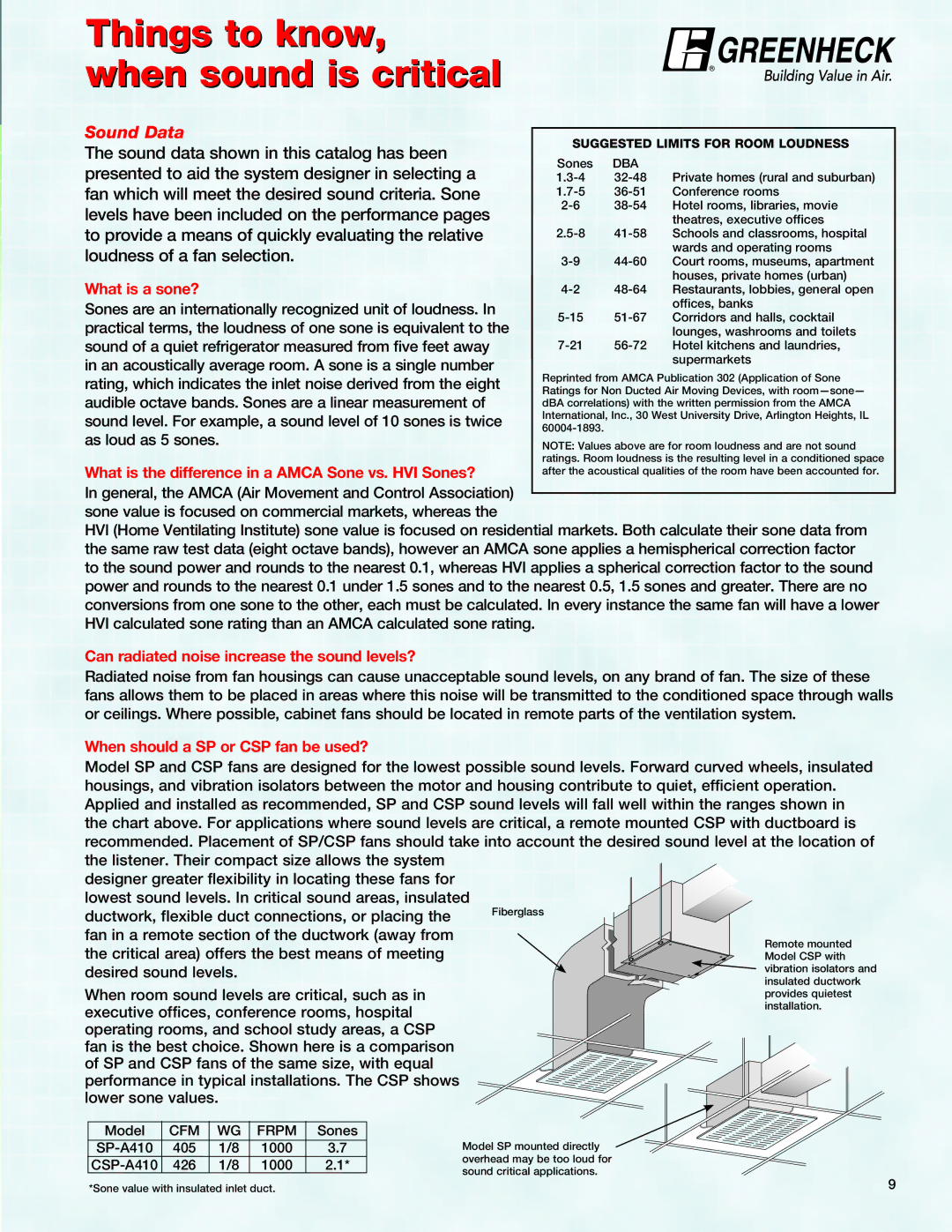CSP, SP specifications
Greenheck Fan Corporation is a leader in the manufacturing of air movement and control equipment, and its SP and CSP series of fans are notable contributions to the realm of ventilation technology. Designed for a variety of applications including commercial, institutional, and industrial settings, these fans provide enhanced performance, energy efficiency, and reliability.One of the main features of the Greenheck SP and CSP series is their robust construction. These fans are built with high-quality materials that ensure durability and longevity, even in demanding environments. The SP model is belt-driven, allowing for higher efficiency and variable speed options, which can adapt to the unique requirements of each application. This flexibility is crucial for ensuring optimal air performance while minimizing energy consumption, making it an environmentally friendly choice.
In contrast, the CSP fan features a direct drive configuration, enhancing its efficiency and reducing maintenance needs. This design trend reflects an industry-wide push towards simpler, yet more effective technological solutions that reduce the total cost of ownership for end users. The direct drive and labyrinth seals help provide quieter operation, a critical feature for settings such as schools, hospitals, and office buildings, where noise reduction is a priority.
Additionally, the fans in both series have been engineered with advanced aerodynamic designs that maximize airflow while minimizing turbulence. This is particularly beneficial in heavy-duty applications, offering improved performance in terms of both static pressure and airflow efficiency. The innovative impeller design optimizes performance across a range of operating conditions, ensuring reliable operation.
Comfort and convenience are also accounted for in the Greenheck SP and CSP series. These fans come equipped with various control options, including integrated controls that facilitate easy adjustments to fan speed and airflow. This adaptability is key for systems requiring precise air handling based on load changes.
Moreover, these fans comply with industry standards for energy efficiency, including ASHRAE regulations, ensuring they meet or exceed the expected benchmarks for sustainability. This commitment to energy-efficient solutions helps customers reduce their operational costs and environmental footprints.
In summary, the Greenheck Fan SP and CSP models represent a significant leap forward in ventilation technology, characterized by their robust design, energy efficiency, and advanced features. Whether for a commercial kitchen, an expansive warehouse, or an educational institution, these fans provide reliable and effective air management solutions tailored to meet the needs of modern facilities.

